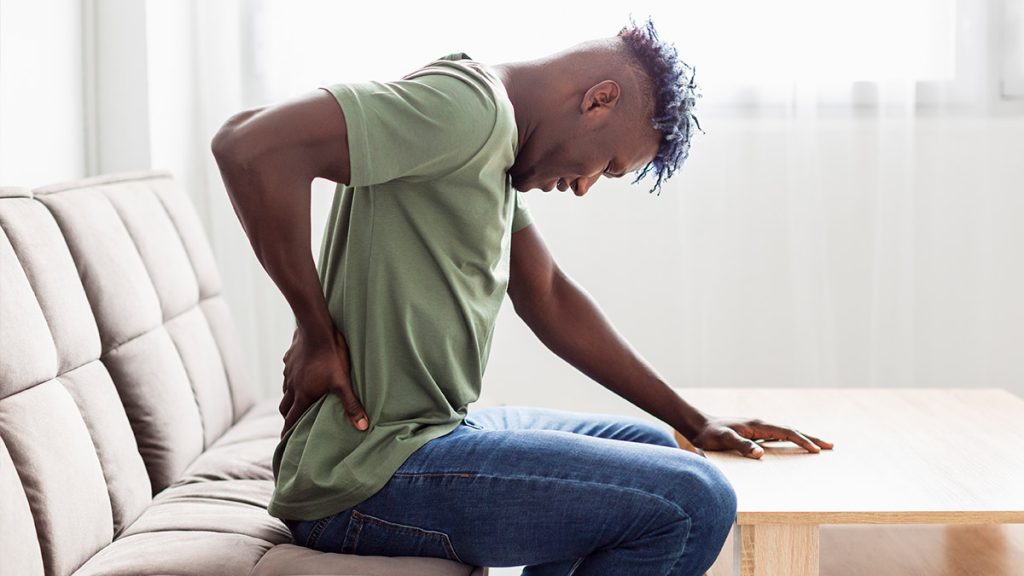
If you struggle with a bad back, you’re not alone. In fact, sore and aching backs send more people to doctors than any other single complaint. And the trouble is that so many things we do as part of our normal lives – sitting at a desk or standing in heels – can contribute to back pain, along with stress, lack of exercise and… bad mattresses. A good mattress, on the other hand, can help to minimise back pain and discomfort. So, how do you find a mattress that will help your back?
Support: This term refers to how well a mattress can maintain an equally level surface for the lighter parts of your body (head, hands and feet), as well as the heavier (hips and torso). While a very soft mattress can start out feeling supportive, it may lose the ability to bounce back over time. In some cases, a soft mattress that begins to sag (usually in the centre of the mattress) can cause back pain in and out of bed.
You will experience some degree of “dipping” in that middle third of your mattress because it’s the area that supports the heaviest parts of the body and will gradually compress over time. Restonic’s patented Marvelous Middle® technology uses high-density foam posture bars that run between the springs in the middle of the mattress adding support to that centre third of the mattress where it is needed the most, to minimise this dipping. All Restonic Marvelous Middle® products are endorsed by the Chiropractic Association of South Africa (CASA).
Conformability: Conformability describes how a mattress will subtly mould to the unique curves of your body. A mattress with good conformability attends to heavier and lighter areas equally, which relieves pressure point pain and protects your back from pain.
On the other hand, a mattress that lacks conformability can result in lower back pain by forcing it into an unnaturally flat position. Your body is in alignment when the spine is mostly straight when lying on your side. When you lie on your back, your spine naturally forms an “S” shape. A supportive mattress with good conformability allows your back muscles to relax. This improves healthy blood circulation and helps prevent you from tossing and turning.
To minimise pain and discomfort and help your body relax into healing, regenerative sleep, you need a mattress that conforms to your body’s favourite sleeping positions while supporting all areas of your body. When it comes to mattress firmness, there’s no universal measure – what feels soft to you may feel firm to someone else or vice versa.
However, soft mattresses might not be the best choice for a sore back. Yes, they tend to conform to your shape, but they may fail to deliver uniform support across the entire body, which can result in lower back pain.
Medium firm mattresses are a good starting point to look at if you’re considering buying a new bed. They tend to conform to your body equally across the entire surface of the mattress, which alleviates pressure point pain for most people.
Although very firm mattresses tend to offer good support, they often don’t conform to the body equally, which can lead to pressure point pain.
Bear in mind that lighter and heavier people may also experience mattress firmness differently, and that it’s important to find a mattress that is comfortable for you. For tips and tricks on selecting the best bed for you, check out our handy guide.
For more fun sleep facts and expert sleep advice, why not visit our Sleep Blog?